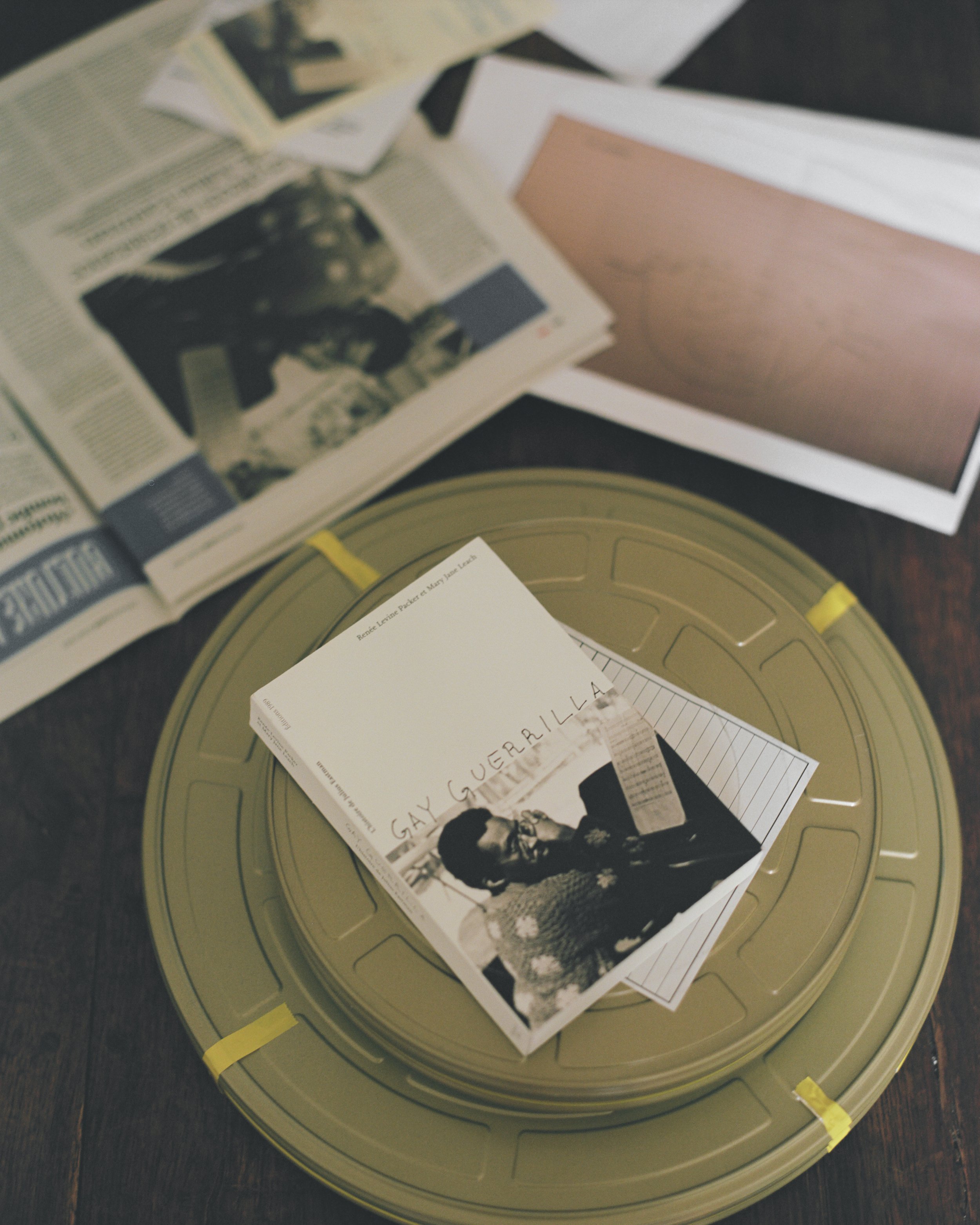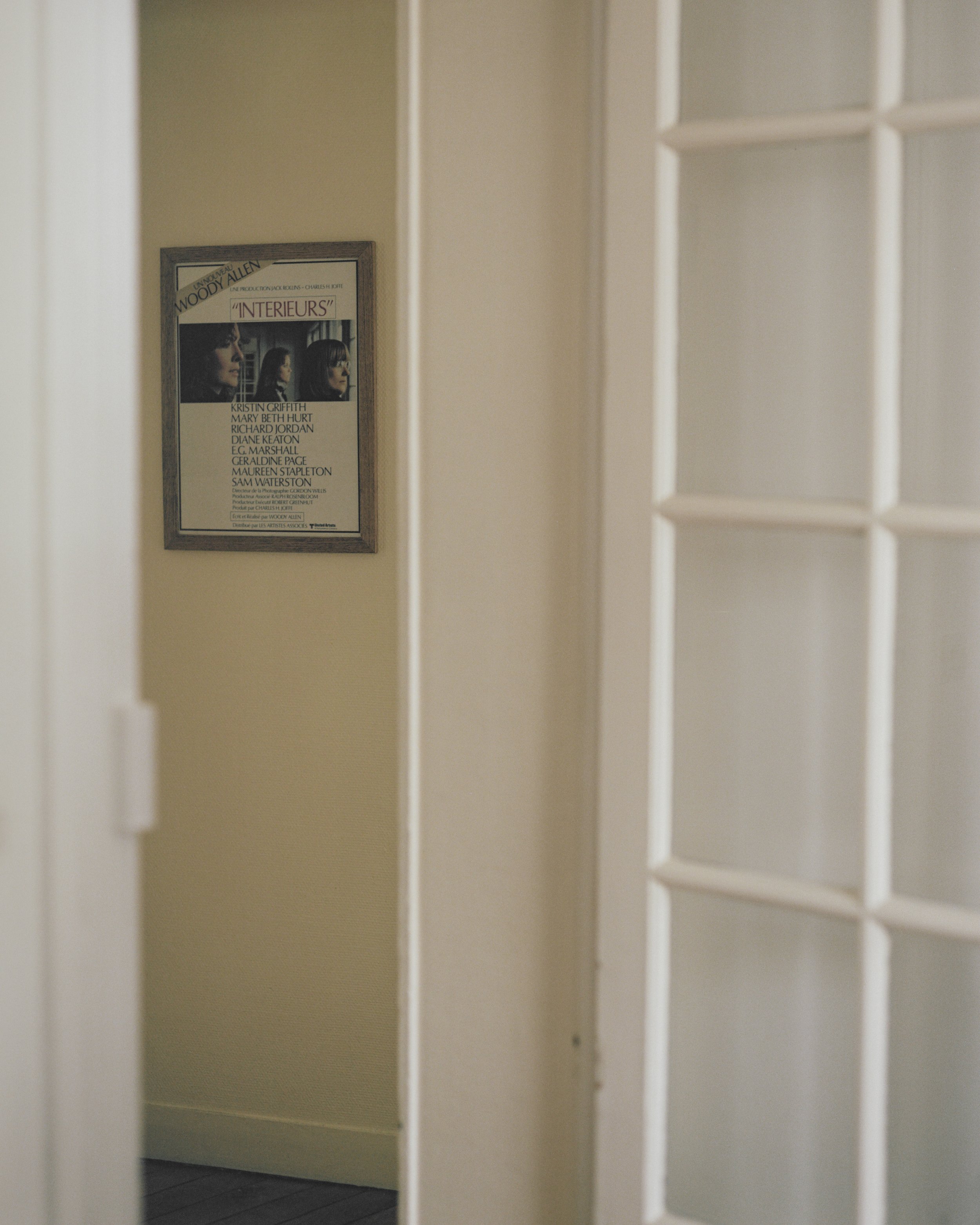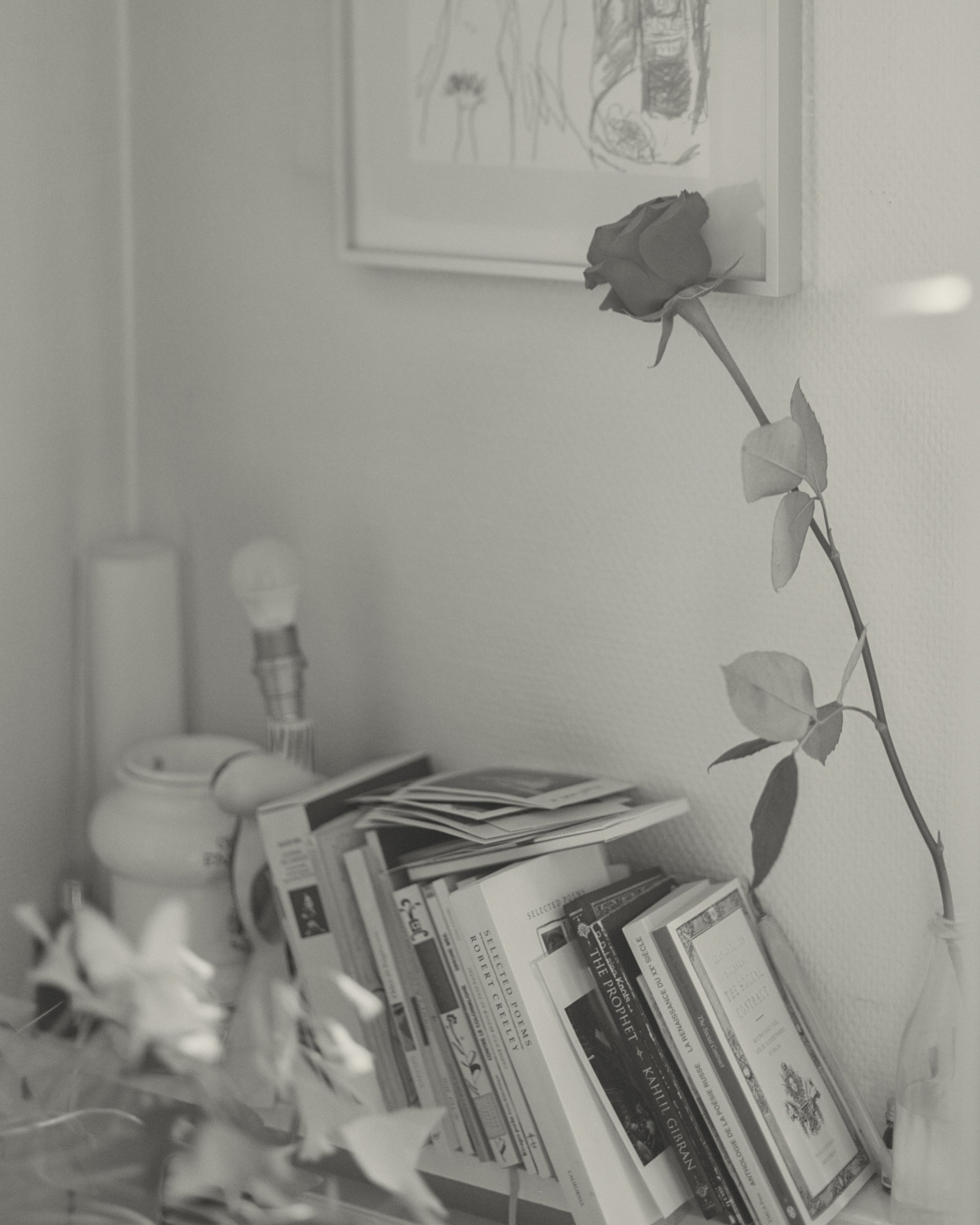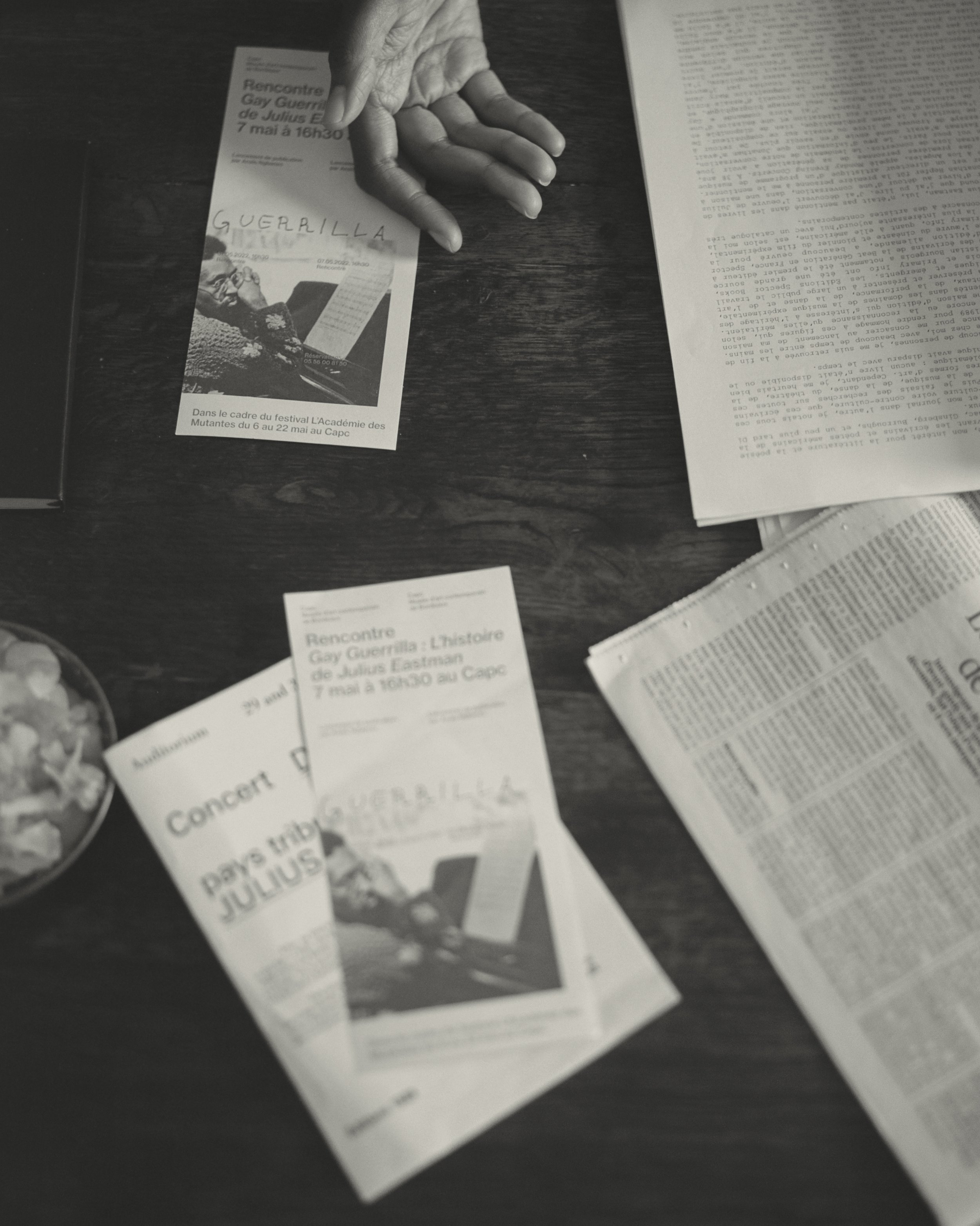Anaïs Ngbanzo
Interview by Jennie Edgar
Photo by Dimanche Creative
September 1st, 2022
Books help us enter other worlds & help us feel less alone.
Anaïs is a publisher and filmmaker from Paris and is the founder of Éditions 1989, a publishing house focusing on the legacy of underrepresented artists. She spoke with us about the books that resonated at a young age; her LA exhibition inspired by literature; discovering James Baldwin; and Anita Pallenberg, the “sixth” Rolling Stone.
“A dream you dream alone is only a dream.
A dream you dream together is reality.”
Grapefruit by Yoko Ono
What were the first cultural influences that had an impact on you?
I grew up in Paris, Rive Gauche. Many great writers lived or spent time in the places I would often visit. [As a kid] I saw commemorative plaques [on the walls of buildings] so I was [aware of] historic French writers at a very young age. I read their books at school since they were part of the curriculum, but I don’t recall being sensitive to them. I think my strong interest in literature started with reading Just Kids by Patti Smith. I was in awe of her. I was amazed by how she lived her life by being such a wild card. Reading her felt like, suddenly, everything was possible, achievable.
Later, I discovered the beat generation, writers such as Ginsberg, Kerouac and Burroughs, and other American poets such as Diane Di Prima. I think the subjects they explored [in their writing] resonate stronger when you read them at a very young age.
When growing up, we’re easily exposed to pop culture and the main figures in Art such as Picasso, Warhol, Van Gogh, and Maupassant, to name a few. Discovering those underground and experimental scenes felt like a divine truth was suddenly revealed to me. They made art very appealing and accessible. It felt like there was suddenly so much to do and learn.
What books have you especially loved?
I read The Year of Magical Thinking by Joan Didion the week after I lost someone dear to me. Reading Didion’s words felt like I was sharing the pain with someone and that I was not alone.
James Baldwin’s books also had a strong impact on me. They shaped my way of thinking and how I saw myself as African born and raised in Paris and helped me feel more confident with less thoughts about how I’m supposed to look or what I’m supposed to do. I read Baldwin’s Notes of a Native Son as a “love letter to African people,” which was quite rare at the time. Other African American writer such as Audre Lorde who promoted self-love weren’t as exposed.
The Waves by Virginia Woolf and The Autobiography of Alice B. Toklas by Gertrude Stein made me question the essence of friendship. The Waves is a beautiful ode to friendship, a relation of equals which demands patience and tolerance if it to succeed. And in Alice B. Toklas I could relate to being surrounding by artists, with all their insecurities and complicated personalities, but which make them the beautiful people they are, as well.
“When growing up, we’re easily exposed to pop culture and the main figures in Art such as Picasso, Warhol, Van Gogh, and Maupassant, to name a few. Discovering those underground and experimental scenes felt like a divine truth was suddenly revealed to me. They made art very appealing and accessible. It felt like there was suddenly so much to do and learn.”
Tell us about Éditions 1989 and the inspiration behind this project.
I’m constantly reading, watching movies, or listening to music and I have felt deeply saddened at times, seeing society put spotlights on the “wrong people.” Some of the artists I’ve discovered years ago have become famous, some are not yet famous, some will never be famous. Éditions 1989 is a publishing house focusing on the legacy underrepresented artists working within experimental music, experimental films, performance, dance, and sound art. Éditions 1989 aims to preserve, nurture, and present to a broad audience the work of historic and emerging artists.
I’ve recently published Gay Guerrilla: The Story of Julius Eastman, who was an American composer, pianist, and singer. Braving adversity penniless, yet with a few compositions in hand, in the 1970s he joined the experimental downtown New York music scene, collaborating with John Cage, Arthur Russell, Meredith Monk and Peter Maxwell Davies. In 1990, after seven years of “voluntary martyrdom” amidst psychotropic drugs and homeless wanderings, Eastman died and fell into obscurity. Gay Guerrillais the first French language book devoted to the artist. From The New Yorker to the New York Times, posthumous praise for the composer reigns today, recognizing him as an iconic figure in the history of America’s avant-garde.
You’ve curated an exhibition about visual art that’s informed by literature. Tell us about it!
The exhibition ‘Thoughts become words, words become images’ was a group show that opened in Los Angeles in September 2019 at HVW8. It investigated the interplay between language, visual expression, and personal evolution. As curator, I worked with Dev Hynes, Gia Coppola, Kelsey Lu, Lily Gavin, and others - artists from across disciplines – and gave them full creative freedom to develop a visual-literary narrative. Drawing upon their interpretations of the novels and poetry that shaped their practices, the artists explored notions of authorship, identity, and inspiration. [For instance,] Dev Hynes selected Ceremonies: Prose and Poetry by the late 1980s poet Essex Hemphill as the basis for a four-channel film titled, Hope, while Gia Coppola selected Victory, Joseph Conrad’s psychological thriller.
Can you think of a time when a book truly moved you?
Giovanni’s Room by James Baldwin and The Life Before Us by Romain Gary, both for the incredible artfulness of the writing found on every page. Reading Giovanni’s Room felt special because it’s one of the only books by Baldwin that is not political but is, instead, a love story.
Every Christmas my mom gifts me a book. [One year she gave me] Sula by Toni Morrison, [and that] was special.
What are you looking for when you’re in search of a “good book?”
It’s often poetry books or a book with strong characters sharing strong thoughts, like Tolstoy or Hemingway's books.
What book would you like to reread? Why?
I’d like to reread 19th-century French literature because I read [these books] at school, which was quite long ago. I would have a totally different understanding today and [I’m sure] they would resonate stronger.
What’s one book you’d like to recommend to the So Textual community?
The One Inside by Sam Shepherd. To me, he’s one of the greatest American contemporary writers. I wish his bibliography had more attention [and a wider] audience. In addition to writing very touching novels,
he wrote successful plays and was also a good drummer. If one would like to know more, there’s a letter to Sam Shephard written by Patti Smith which is quite interesting.
How has reading literature had a positive impact on your life?
Literature helps me to enter another world, my own world when it is much needed.
Books we've added to our LIBRARY
Just Kids by Patti Smith
The Year of Magical Thinking by Joan Didion
The Waves by Virginia Woolf
Notes of a Native Son by James Baldwin
The Autobiography of Alice B Toklas by Gertrude Stein
Gay Guerrilla: The Story of Julius Eastman by Renee Levine-Packer
Giovanni’s Room by James Baldwin
The Life Before Us by Romain Gary
The One Inside by Sam Shepherd
Sula by Toni Morrison








